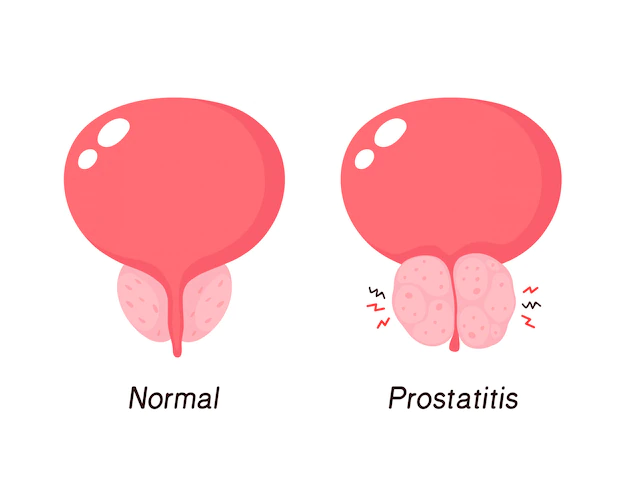Prostatitis: Causes, Diagnosis, and Treatment

Prostatitis is the inflammation of the prostate gland, which can cause a range of symptoms such as pain, discomfort, and difficulty urinating. There are different types of prostatitis, which can have varying causes and treatment options. Here is an overview of the causes, diagnosis, and treatment of prostatitis:
Causes:
- Bacterial infection: This is the most common cause of acute bacterial prostatitis, where bacteria infect the prostate gland, leading to inflammation and pain.
- Non-bacterial prostatitis: This type of prostatitis can occur without an infection, and its causes are not well understood.
- Chronic prostatitis: This is the most common type of prostatitis and is characterized by long-term inflammation of the prostate gland. The causes of chronic prostatitis are not well understood but may include immune system disorders or nerve damage.
Diagnosis:
- Physical exam: A doctor may perform a digital rectal exam (DRE) to check for an enlarged or tender prostate.
- Urine tests: Urine tests can help determine if there is an infection or inflammation in the prostate gland.
- Blood tests: Blood tests can be used to check for prostate-specific antigen (PSA) levels, which can indicate inflammation or cancer in the prostate gland.
- Imaging tests: Imaging tests, such as an ultrasound or MRI, can be used to examine the prostate gland and surrounding areas.
Treatment:
- Antibiotics: If a bacterial infection is identified as the cause of prostatitis, antibiotics may be prescribed to treat the infection.
- Alpha-blockers: Alpha-blockers are a type of medication that can help relax the muscles around the prostate gland, reducing symptoms such as urinary frequency and urgency.
- Pain medication: Over-the-counter pain medication such as ibuprofen can help relieve pain and discomfort associated with prostatitis.
- Lifestyle changes: Making lifestyle changes such as drinking more water, avoiding caffeine and alcohol, and avoiding spicy foods can help reduce symptoms.
In conclusion, prostatitis is a common condition that can be caused by bacterial infection or non-infectious factors. Diagnosis may involve physical examination, urine and blood tests, and imaging tests. Treatment options may include antibiotics, alpha-blockers, pain medication, and lifestyle changes, depending on the underlying cause and severity of symptoms.
